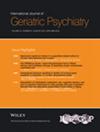Association between drinking water sources and cognitive functioning in Chinese older adults residing in rural areas
Abstract
Objectives
To explore the association between drinking water sources and cognitive functioning among older adults residing in rural China.
Methods
Data were extracted from the 2008–2018 Chinese Longitudinal Healthy Longevity Survey. Drinking water sources were categorized according to whether purification measures were employed. The Chinese version of the Mini-Mental State Examination was used for cognitive functioning assessment, and the score of <24 was considered as having cognitive dysfunction. Cox regression analyses were conducted to derive hazard ratios (HRs) and 95% confidence intervals (CIs) for the effects of various drinking water sources, changes in such sources, and its interaction with exercise on cognition dysfunction.
Results
We included 2304 respondents aged 79.67 ± 10.02 years; of them, 1084 (44.49%) were men. Our adjusted model revealed that respondents consistently drinking tap water were 21% less likely to experience cognitive dysfunction compared with those drinking untreated water (HR = 0.79, 95% CI: 0.70–0.90). Respondents transitioning from natural to tap water showed were 33% less likely to experience cognitive dysfunction (HR = 0.67, 95% CI: 0.58–0.78). Moreover, the HR (95% CI) for the interaction between drinking tap water and exercising was 0.86 (0.75–1.00) when compared with that between drinking untreated water and not exercising. All results adjusted for age, occupation, exercise, and body mass index.
Conclusions
Prolonged tap water consumption and switching from untreated water to tap water were associated with a decreased risk of cognitive dysfunction in older individuals. Additionally, exercising and drinking tap water was synergistically associated with the low incidence of cognitive dysfunction. These findings demonstrate the importance of prioritizing drinking water health in rural areas, indicating that purified tap water can enhance cognitive function among older adults.

 求助内容:
求助内容: 应助结果提醒方式:
应助结果提醒方式:


